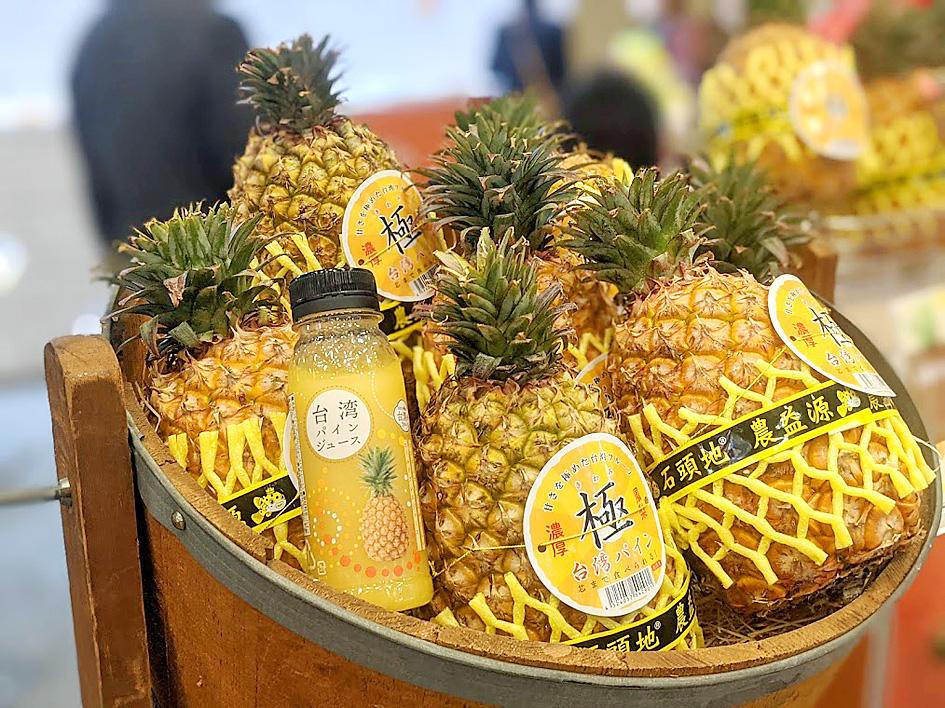A majority of Japanese feel friendly toward Taiwan, with almost half of respondents in a poll saying that they want to visit the country after COVID-19 travel curbs are eased, the Taipei Economic and Cultural Representative Office in Japan said yesterday.
The office said that 75.9 percent of respondents said they feel friendly toward Taiwan, citing as reasons the friendliness and politeness of Taiwanese, the long history of ties between the two nations, and the strength of bilateral trade.
More than one-quarter of respondents — 26.4 percent — said they had traveled to Taiwan, while 47.8 percent said they would like to once international travel resumes, the office said.

Photo: Lin Tsuei-yi, Taipei Times
Regarding Taiwan-Japan relations, 71.4 percent of respondents said they are happy with the relationship, while 59.6 percent said they expect the ties to get a boost in the future, the office said.
The poll showed that 64.8 percent of respondents described Taiwan as “trustworthy,” citing as reasons Taiwan’s attitude toward Japan, shared democratic values and its peacefulness, it said.
Asked to choose the most friendly country in Asia, 46.6 percent of respondents chose Taiwan, 15.8 percent chose South Korea, 12.5 percent chose Singapore and 3 percent chose China, it said.
The poll showed that 65.1 percent of respondents agreed with Taipei’s assessment that trade between the two nations would get a boost if Taiwan joins the Comprehensive and Progressive Agreement for Trans-Pacific Partnership, it said.
Asked to choose which Taiwan-related issue is the most important to Japan, 40.7 percent said the country is most affected by the situation across the Taiwan Strait, while 8.2 percent cited fishery disputes and 6.8 cited economic competition, the office said.
Another 24.4 percent said there are no problems between Taiwan and Japan, it said.
Asked to select Taiwanese fruits they want to buy, 57.6 percent of respondents chose bananas, 57 percent chose pineapples and 44.2 percent chose mangoes, it said.
The office has since 2016 commissioned the Japan-based Central Research Services to conduct the annual survey on Japanese perception of Taiwan. This year’s poll utilized telephone interviews and Internet-based questionnaires, collecting responses from 1,000 Japanese aged 20 to 89.

A group of Taiwanese-American and Tibetan-American students at Harvard University on Saturday disrupted Chinese Ambassador to the US Xie Feng’s (謝鋒) speech at the school, accusing him of being responsible for numerous human rights violations. Four students — two Taiwanese Americans and two from Tibet — held up banners inside a conference hall where Xie was delivering a speech at the opening ceremony of the Harvard Kennedy School China Conference 2024. In a video clip provided by the Coalition of Students Resisting the CCP (Chinese Communist Party), Taiwanese-American Cosette Wu (吳亭樺) and Tibetan-American Tsering Yangchen are seen holding banners that together read:

UNAWARE: Many people sit for long hours every day and eat unhealthy foods, putting them at greater risk of developing one of the ‘three highs,’ an expert said More than 30 percent of adults aged 40 or older who underwent a government-funded health exam were unaware they had at least one of the “three highs” — high blood pressure, high blood lipids or high blood sugar, the Health Promotion Administration (HPA) said yesterday. Among adults aged 40 or older who said they did not have any of the “three highs” before taking the health exam, more than 30 percent were found to have at least one of them, Adult Preventive Health Examination Service data from 2022 showed. People with long-term medical conditions such as hypertension or diabetes usually do not

POLICE INVESTIGATING: A man said he quit his job as a nurse at Taipei Tzu Chi Hospital as he had been ‘disgusted’ by the behavior of his colleagues A man yesterday morning wrote online that he had witnessed nurses taking photographs and touching anesthetized patients inappropriately in Taipei Tzu Chi Hospital’s operating theaters. The man surnamed Huang (黃) wrote on the Professional Technology Temple bulletin board that during his six-month stint as a nurse at the hospital, he had seen nurses taking pictures of patients, including of their private parts, after they were anesthetized. Some nurses had also touched patients inappropriately and children were among those photographed, he said. Huang said this “disgusted” him “so much” that “he felt the need to reveal these unethical acts in the operating theater

Heat advisories were in effect for nine administrative regions yesterday afternoon as warm southwesterly winds pushed temperatures above 38°C in parts of southern Taiwan, the Central Weather Administration (CWA) said. As of 3:30pm yesterday, Tainan’s Yujing District (玉井) had recorded the day’s highest temperature of 39.7°C, though the measurement will not be included in Taiwan’s official heat records since Yujing is an automatic rather than manually operated weather station, the CWA said. Highs recorded in other areas were 38.7°C in Kaohsiung’s Neimen District (內門), 38.2°C in Chiayi City and 38.1°C in Pingtung’s Sandimen Township (三地門), CWA data showed. The spell of scorching